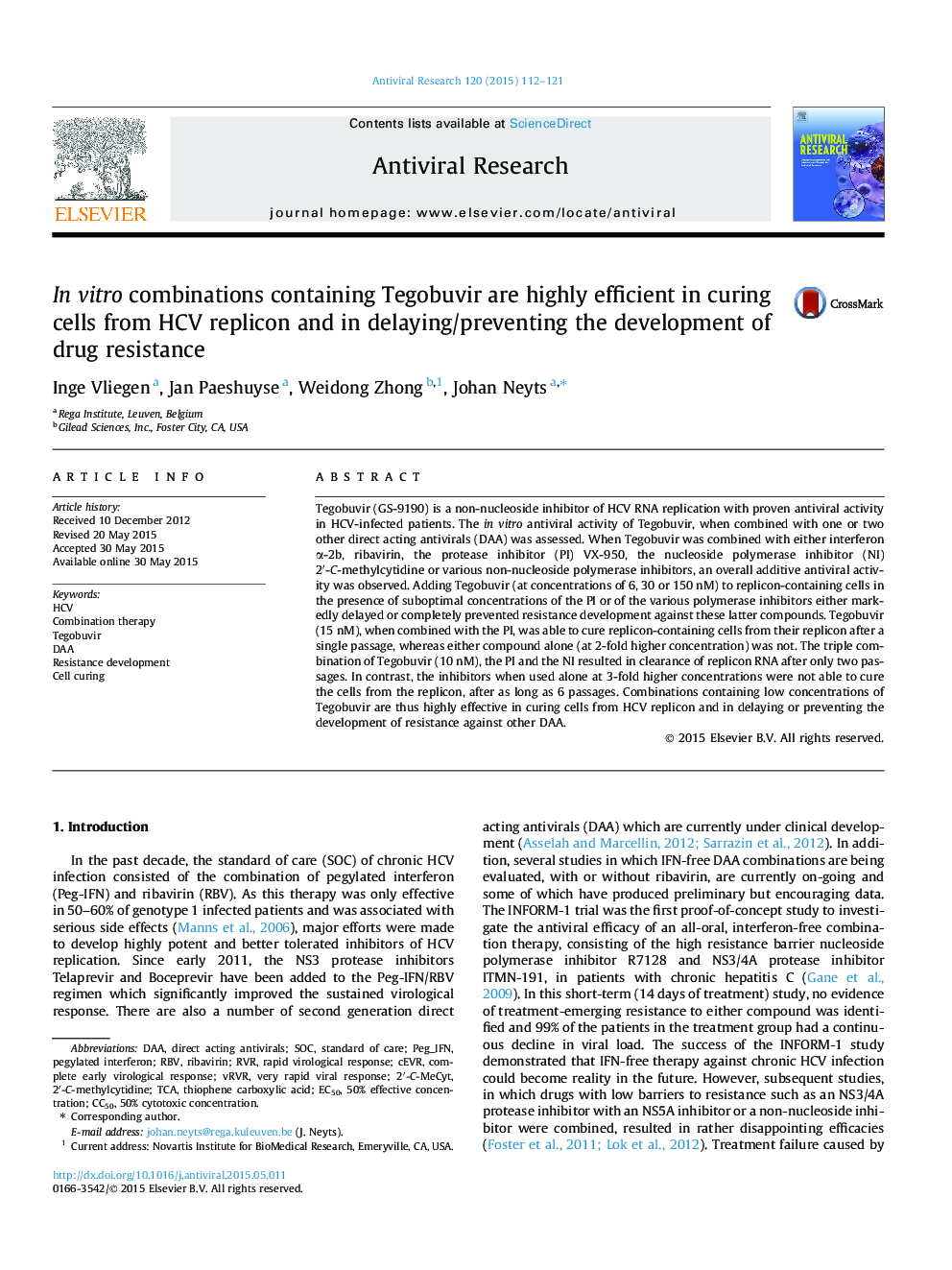| Article ID | Journal | Published Year | Pages | File Type |
|---|---|---|---|---|
| 5821900 | Antiviral Research | 2015 | 10 Pages |
â¢The in vitro anti-HCV activity of combinations containing the non-nucleoside polymerase inhibitor Tegobuvir was studied.â¢In short term (3 days) assays an additive effect was observed.â¢At low concentrations Tegobuvir delays/prevents resistance development to other inhibitors.â¢Combinations containing Tegobuvir efficiently clear cells from their HCV replicon.
Tegobuvir (GS-9190) is a non-nucleoside inhibitor of HCV RNA replication with proven antiviral activity in HCV-infected patients. The in vitro antiviral activity of Tegobuvir, when combined with one or two other direct acting antivirals (DAA) was assessed. When Tegobuvir was combined with either interferon α-2b, ribavirin, the protease inhibitor (PI) VX-950, the nucleoside polymerase inhibitor (NI) 2â²-C-methylcytidine or various non-nucleoside polymerase inhibitors, an overall additive antiviral activity was observed. Adding Tegobuvir (at concentrations of 6, 30 or 150 nM) to replicon-containing cells in the presence of suboptimal concentrations of the PI or of the various polymerase inhibitors either markedly delayed or completely prevented resistance development against these latter compounds. Tegobuvir (15 nM), when combined with the PI, was able to cure replicon-containing cells from their replicon after a single passage, whereas either compound alone (at 2-fold higher concentration) was not. The triple combination of Tegobuvir (10 nM), the PI and the NI resulted in clearance of replicon RNA after only two passages. In contrast, the inhibitors when used alone at 3-fold higher concentrations were not able to cure the cells from the replicon, after as long as 6 passages. Combinations containing low concentrations of Tegobuvir are thus highly effective in curing cells from HCV replicon and in delaying or preventing the development of resistance against other DAA.
